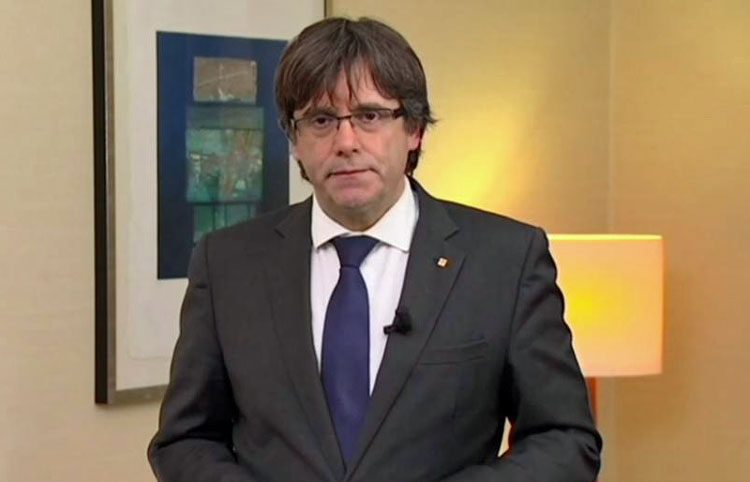Ángel Collado
23rd July general elections final return, which summed one more seat for People’s Party to the detriment of PSOE, adds complications to Pedro Sánchez’s plan to remain in power and ensures more instability for a future social-communist coalition government.
In order to re-edit his left-wing cabinet, the acting chief executive must also count on and please the pro-independence right-wing Junts per Catalunya, the party of former president of the Generalitat Carles Puigdemont, who has been on the run from Spanish justice since he led the separatist attempt on 1 October 2017.
The governmental media, both public and private, have begun to whiten the image of the fugitive and normalise the PSOE’s future relations with Junts, given that his participation is inevitable for Sánchez to be once again invested president of the government, despite having lost the elections to the PP and only having 121 seats in a Congress made up of 350 members.
Abstention is no longer enough for the Socialists; they need the ‘yes’ of the seven MPs controlled by Puigdemont from Brussels, an essential piece to sustain Sanchez’s offer of a ‘progressive’ cabinet, supported until now in a stable way by the left-wing separatist groups, the Catalan ERC and the Basque Bildu, heir to the political arm of ETA.
In order to count on both parties, Sánchez has applied himself in recent years to washing the past and the record of the main leaders who have become his partners: a slogan to make the terrorist past of Arnaldo Otegi, head of Bildu, be forgotten, and a pardon for Oriol Junqueras, head of ERC, to be released from prison where he was serving a sentence for sedition and embezzlement. In the government’s argumentation, both were supposed to be “progressive” contributions. The problem with Puigdemont is that he is not very left-wing (his successor Torra was equated with Le Pen by Sánchez himself) and cannot be pardoned because he has not yet been convicted.
The former president of the Generalitat, who proclaimed his own independent republic before fleeing abroad, is putting the same price as always to collaborate with the continuity of the left-wing coalition: a referendum of self-determination that puts an end to the unity of Spain and the current constitutional regime, and a general amnesty for his followers convicted or pending trial, like himself, which does not fit in the Constitution either.
Puigdemont adds relations with Russia to his political record of complicated whitewashing. The European Commission is keeping the spotlight on Putin’s infiltration of the Catalan separatist movement and a recent report by the Joint Research Centre reminds member states that Russia used the now fugitive to weaken the Spanish state and the EU in the 2017 secessionist attempt. It is a factor of “deep and lasting” instability in Spain that threatens to influence all Western countries, the report said last week.
The PSOE takes it for granted that in the end there will be an agreement with Puigdemont to incorporate him into the constellation of separatist parties that support him in Parliament. Although on election night it was enough with a gradual and discreet negotiation for a simple abstention and now it will have to be an active and evident ‘yes’, the socialists remain officially just as optimistic, but without clarifying what part of Junts’ bill they are willing to pay.
The seat added by the PP in the final count has given more encouragement to its leaders as they see the new complication that Sánchez has to avoid his own defeat with pacts. Feijóo still does not have the numbers to be president of the government, but the socialist is left in the hands of Puigdemont, representative of the most separatist Catalan right, to re-edit his coalition. And, contrary to Sanchez’s plans on election night, the focus of political interest will be on his negotiations with the fugitive from justice and not on the president of the Popular Party.
The acting head of the Executive cannot limit himself to stalling Junts or disguising medium-term concessions. He has two weeks to get a pact with Puigdemont on track, because if on 17 August he does not win the support of his seven MPs when it comes to electing the president of Congress, the PP will take over the post and the majority of the Chamber’s Bureau.
And if Sánchez has already secured the support of the fugitive separatist and wins the presidency of the Parliament by then, he will have to explain the concessions on the Constitution and Justice agreed upon, which Puigdemont will be able to boast about whenever he sees fit.







